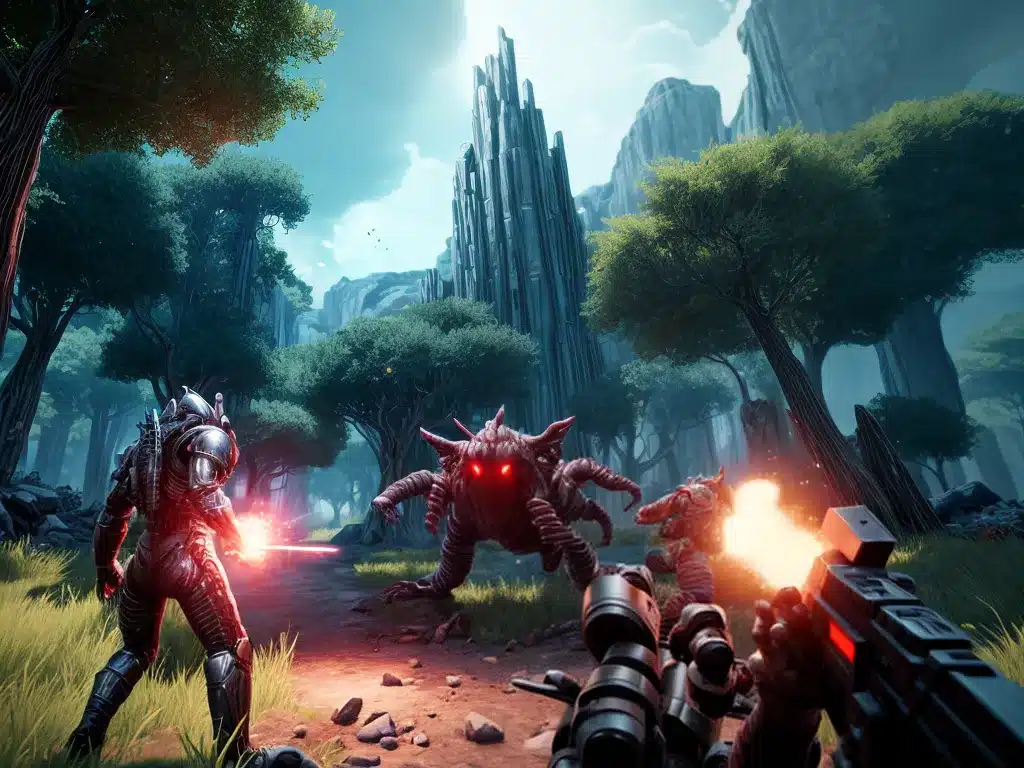
Introduction
As an indie game developer, choosing the right game engine can have a huge impact on the success and feasibility of your project. The two most popular options are Unity and Unreal Engine. But which one is better suited for indie development? Here is an in-depth comparison of Unity and Unreal Engine across key factors like licensing, learning curve, features, community, and performance.
Licensing and Pricing
Unity offers a free license that allows full access to the engine’s core features and enables developers to publish to multiple platforms. Revenue from projects under $100k using the free license is royalty-free.
For larger projects, Unity’s Plus and Pro licenses provide additional features and services. They cost $399 and $1,800 per year respectively. Revenue from Plus/Pro licenses is royalty-free until $200k.
Unreal Engine is free to use and 5% royalties are paid to Epic Games once gross product revenue from a game exceeds $1 million. This threshold makes Unreal Engine very accessible to indie developers.
Overall, Unity’s free tier is great for starting out while Unreal Engine’s royalty-based model benefits mid-to-large scale projects.
Ease of Learning
Unity uses C# programming which is easier for beginners to pick up compared to C++ used by Unreal. The documentation and learning resources are more extensive for Unity. Unreal Engine has a steeper learning curve due to its complex node-based visual scripting system.
However, Unreal Engine’s Blueprints visual scripting system does make it more beginner friendly compared to traditional C++ programming.
For indie developers starting out, Unity has a gentler learning curve though Unreal Engine is also manageable with Blueprint scripts.
Feature Set
Unity offers 2D, 3D, VR, AR and mobile support out of the box. Useful features like prefabs, pixel perfect camera, sprite packer, tilemap editor and animator controller aid 2D development.
Unreal Engine excels at high fidelity 3D graphics. The modular code and Blueprint scripting system also provides a lot of design flexibility. Unreal offers LODs, HLODs, and high quality lighting that makes it suitable for AAA quality games.
For 2D games, Unity has more tailored tools while Unreal Engine is better for high visual fidelity 3D games.
Asset Store vs Marketplace
Unity has the largest game asset store with thousands of 2D, 3D, audio, visual scripting assets and plugins. Many assets are free or paid low cost alternatives to engineering complex game mechanics from scratch.
Unreal Engine also has a marketplace but with fewer assets overall. The assets tend to cater more towards 3D effects and content.
Unity’s asset store is a huge bonus, especially for indie developers with small budgets and teams.
Performance
Unity supports C# scripting which is managed code running on .NET virtual machine. This gives good portability across platforms but comes with a performance hit compared to native C++ code.
Unreal Engine games natively compile to machine code giving faster performance, especially for 3D graphics intensive games. Unity does offer experimental bursting compilation to native code but it is currently limited to mobile platforms.
Unreal Engine has superior runtime performance compared to Unity though the difference may not be critical for 2D/simple 3D indie games.
Community and Support
Both engines have excellent community support. Unity has a broader user base of indie developers so solutions to common issues are easier to find. Unreal Engine’s community is smaller but highly engaged with lots of shared content and assets.
Official developer support is great for both engines. Unity offers additional value through its large base of certified developers providing support in the forums.
With its large and active community, Unity edges out Unreal Engine when it comes to community support.
Conclusion
For 2D indie games, Unity is preferred for its ease of use, 2D features and asset store. For high fidelity 3D games, Unreal Engine is the better choice with its superior graphics rendering and native performance.
However, both engines are excellent choices for indie development. So weigh the factors as per your specific project needs. Initially its good to prototype with both engines before deciding on using one as your primary engine.












